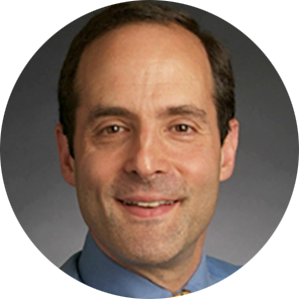World Sleep Day is an annual celebration of something we hold near and dear to use here at Naturepedic: sleep. This month, Dr. Arthur Lavin shares his take on this year’s theme, Sleep Equity for Global Health. Find more trusted health information from Dr. Lavin on the ParentTalk Podcast!
“Balm of hurt minds, great nature's second course,
Chief nourisher in life's feast,—”
Shakespeare, Macbeth, Act II Scene 2
Happy World Sleep Day, Naturepedic community. Most people think the purpose of sleep is rest. Somehow Shakespeare knew better, when he had Macbeth ponder on the nature of sleep, calling it the “Chief nourisher in life’s feast.” And people have known as long as there have been people that sleep is essential. No one, no animal, can live without it.
There is something urgently essential about sleep, but it is only recently that we have begun to understand what that is. And the more we know, the more urgent a sense of justice emerges when it comes to sleep. Who would have guessed what simply appeared to be resting would take on such urgency for our health, and our world?
The Actual Purpose of Sleep


Why we sleep is closely tied to the functioning of the brain. Not for brains to rest, but to literally function. We know this from denying ourselves enough sleep – our ability to pay attention, to do cognitive functions weakens. In prison, keeping someone from falling asleep reliably leads to frank collapse of cognitive function, to eruptions of psychotic thinking. But how does sleep really act to ensure our brains continue to function?
Prediction and Response
The current understanding suggests that a central function of our brain, our mind, is to predict what will happen next, and then see if the next event is fully anticipated, fully novel or somewhere in between. If our prediction for the next moment is spot on, our mind notes in what ways its predictions worked. What came just before can even more reliably be counted on to predict the next moment. And if the prediction is quite wrong, the brain leaps into action to learn all about the new reality that is upon it.
This work of the mind is constant and intense. The brain consumes about a third of all the energy we eat in all our food, that is how much it costs to run our prediction and response machine. But that works as long as we eat enough and breathe enough to keep it going.
So Why Sleep?
It’s believed that sleep is the condition in which the brain turns off all new predictions and events. It turns off signals from the world and organizes what it has learned that day. It forges memories of events that matter the most. Some are facts, some are emotional reactions to various levels of pleasure, danger and such.
The brain needs to do this every day, or the new experiences pile up beyond its ability to organize what we have learned. And that is a sure path to generate brain difficulties: to deny it the time to organize new learning from a day’s experience.
There is also widespread agreement that these are all very preliminary understandings of why we sleep. Knowing how sleep functions is all part of knowing how the mind functions, and we are very far from fully understanding either.
The Price of Poor Sleep
The most obvious price of poor sleep is being tired. But keep in mind, being tired is like being hungry. You might think we eat because we get hungry, but it turns out hunger is a state the mind invents to trick you into eating. And it’s essential! No hungry, no eat. The same goes with being tired. It’s a state of mind that the brain creates to trick us into lying down and entering “great nature’s second course.” No tired, no sleep.
But not getting enough sleep to allow our brains to complete their essential functions when shielded from input from the world causes grave harms that go well beyond feeling tired.
The harms group into loss of mental function, like…
- Inability to pay attention
- Loss of cognitive function
- Social incompetence
- Emotional distress
- Depression
…and, chronically, the loss of physical health, leading to:
- Heart attacks
- Cancer
- Strokes
- High blood pressure
- Kidney disease
- Diabetes.
If you didn’t know before, now you do: not getting enough sleep can shorten your life.


Sleep Inequality as an Urgent Matter of Justice
The ability to get a good night’s sleep varies quite widely from person to person, but sleep inequality still exists. While there are no “groups” of people who inherently all sleep well or all sleep poorly, there are trends that should concern us.
For example, poverty causes tremendous loss of sleep. Groups more likely to face financial hardship are also more likely to have worse sleep quality, which can lead to cognitive, emotional and physical decline – and make it even more difficult to escape poverty.
And we know that poverty is not randomly distributed, here in the United States and nearly everywhere in the world. Across nearly every nation, including our own U.S., certain groups are designated to suffer greater chances of being poor. We see this openly in the caste system in India, but just across historic racial divides in the United States and in nearly every nation around the planet as well.
On the global stage, the chance of living in poverty varies by region, with far greater chances of living in the world of poverty in the Global South than North America, Europe, and the prosperous nations of East Asia.
Sleep Equity for Global Health
Taking all of this into account, it becomes urgent to add the crippling effect of denied sleep to the list of problems that poverty imposes on our fellow humanity forced to live in poverty, here at home and around the world.
Not getting adequate sleep can shorten life, getting enough sleep can lengthen it. This makes working to ensure all of humanity, all our children and all the adults of our human community live lives that include sleeping well – this World Sleep Day and every day.
A World Sleep Day Note from Naturepedic
Want to make a difference in your local community for World Sleep Day? Humble Design is a non-profit organization making remarkable strides in addressing the epidemic of homelessness by collaborating with local communities to source newly donated or gently used furniture, household goods and even mattresses.
 BABY
BABY  KIDS
KIDS  ADULT
ADULT  LEARN
LEARN  STORES
STORES 



